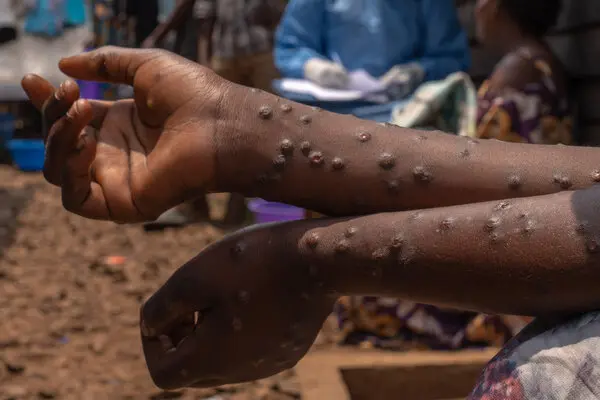The Western Regional Health Directorate in Ghana is grappling with a significant Mpox outbreak, reporting one confirmed death and a concerningly high number of cases. As of September 18, 2025, the region has recorded 246 confirmed cases, with 52 remaining active. Of these active cases, two individuals are hospitalized, one in critical condition. While 190 individuals have recovered, the persistent nature of the outbreak and the alarming number of suspected cases, totaling 724, highlight the challenges faced by health authorities. The outbreak has spread across 13 of the region’s 14 districts, impacting a significant portion of the population and placing a strain on healthcare resources. The identification of 963 contacts further emphasizes the potential for continued transmission and the need for robust public health interventions.
The Western Region has emerged as the epicenter of the Mpox outbreak in Ghana, surpassing other regions in terms of reported cases. Dr. Gifty Amugi, the Western Regional Deputy Director for Public Health, attributes this high prevalence to a combination of factors, including a lag in social behavioral change and a perception among the population that the disease poses a low risk. This underestimation of the disease’s potential severity has likely contributed to less stringent adherence to preventative measures. The perceived low risk may be linked to limited public awareness and understanding of Mpox transmission, symptoms, and potential complications. This lack of perceived risk can hinder the adoption of protective behaviors and contribute to the ongoing spread of the virus.
Despite ongoing public health efforts, the Mpox outbreak persists in the Western Region. Dr. Amugi notes that the public health messaging may not be resonating effectively with the population, leading to a continued spread of the virus. The communication challenge lies in ensuring that the information provided is not only accurate and accessible but also culturally relevant and engaging. This requires understanding community beliefs and practices, addressing existing misconceptions, and tailoring the message to resonate with different demographics. The urgency of the situation necessitates a collaborative approach involving community leaders, healthcare providers, and the media to amplify the message and promote behavioral change.
The Ghana Health Service (GHS) organized a media engagement in Takoradi to address the escalating Mpox outbreak and solicit media support in raising public awareness. Recognizing the crucial role of the media in disseminating information and shaping public perception, the GHS sought to equip journalists with the necessary knowledge and resources to effectively communicate about Mpox. The engagement served as a platform to discuss the current situation, emphasize the importance of preventative measures, and encourage responsible reporting on the outbreak. By partnering with the media, the GHS aims to reach a wider audience and foster a greater understanding of Mpox and its potential consequences.
Dr. Amugi urged journalists to leverage their platforms to amplify public health messaging regarding Mpox prevention. She stressed the importance of disseminating accurate information about best practices, including regular handwashing with soap, avoiding contact with rodents and wild animals, and regularly cleaning and disinfecting frequently touched surfaces. These preventative measures are crucial in breaking the chain of transmission and curbing the spread of the virus. Effective communication is essential in empowering individuals to take proactive steps to protect themselves and their communities.
The media engagement fostered a sense of shared responsibility in combating the Mpox outbreak. Participants pledged their commitment to utilize their respective platforms to deepen awareness and disseminate information regarding preventative measures. This collaborative approach acknowledges that collective action is essential in containing the spread of the virus. By working together, health authorities, media outlets, and community members can create a unified front against Mpox and protect the health of the region. The commitment demonstrated by the media professionals signifies their recognition of the crucial role they play in public health education and their willingness to contribute to the collective effort to combat the Mpox outbreak.














